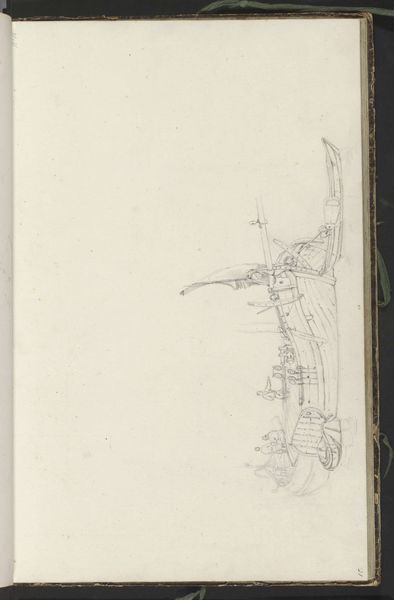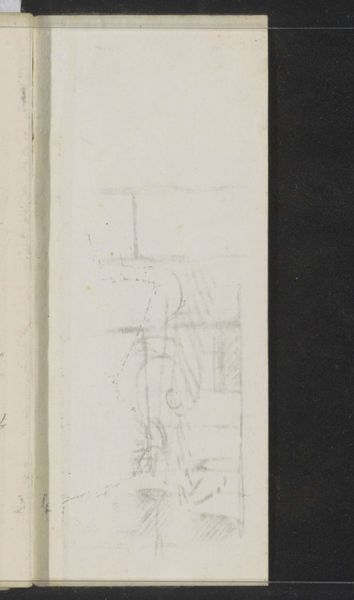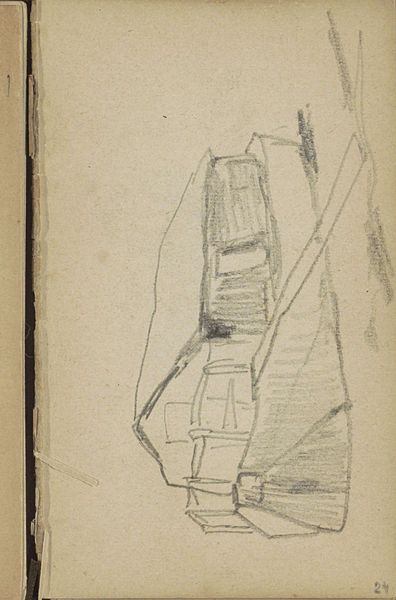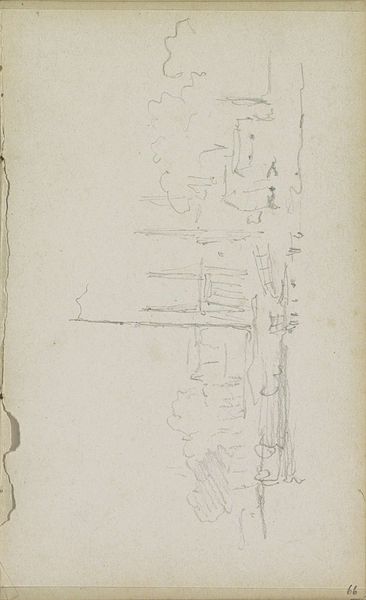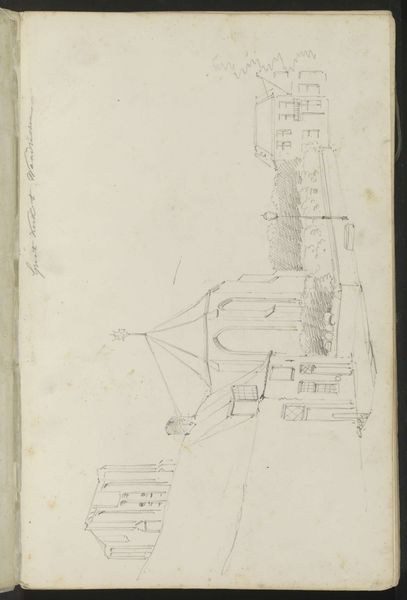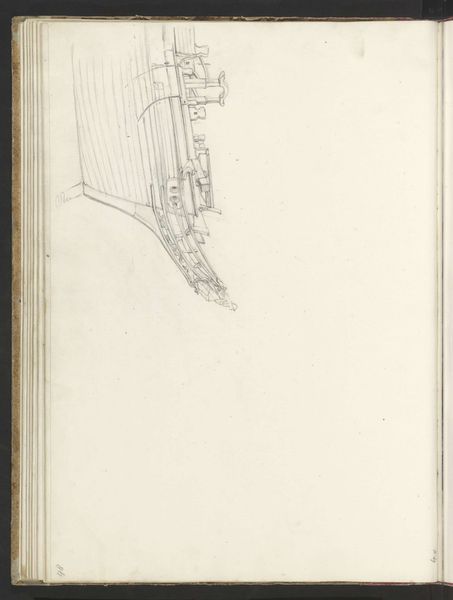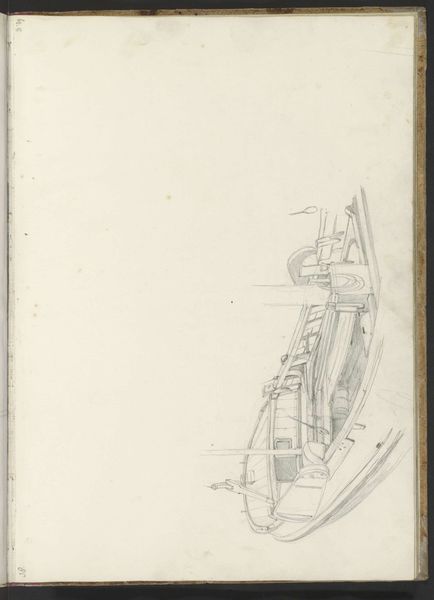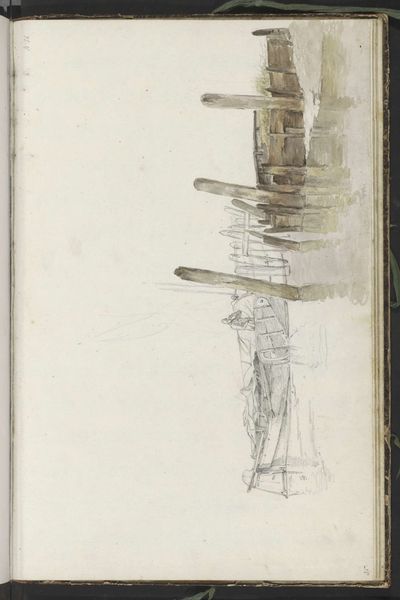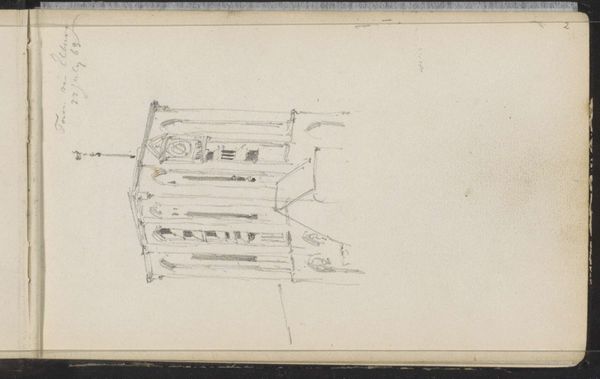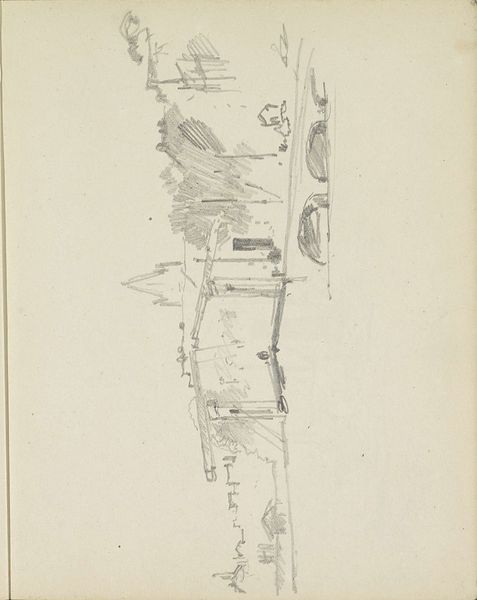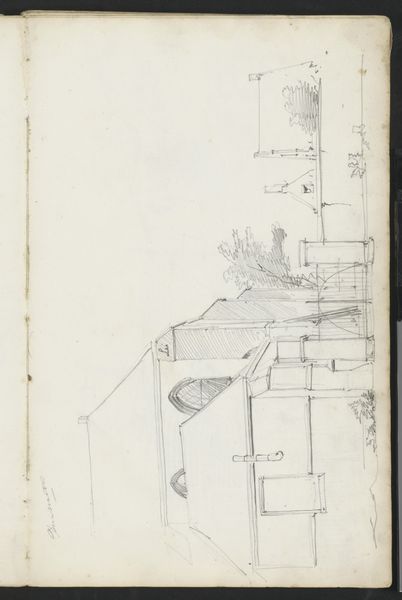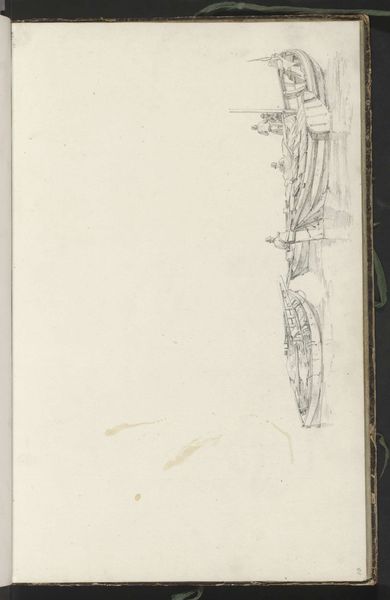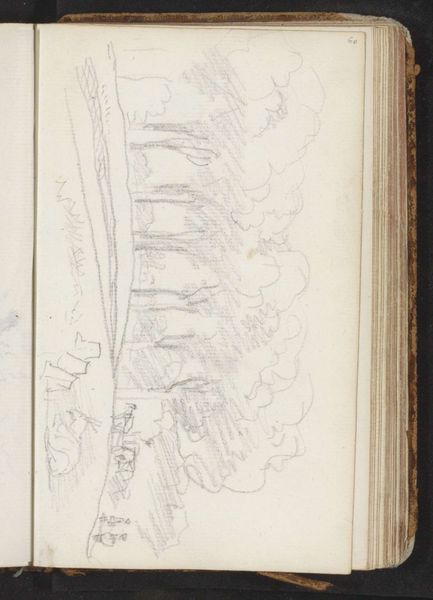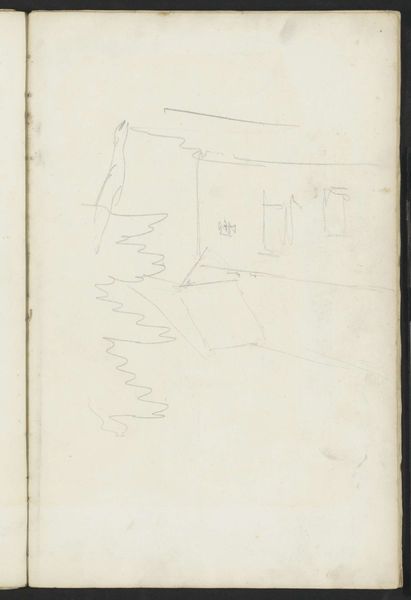
#
aged paper
#
toned paper
#
incomplete sketchy
#
personal sketchbook
#
coloured pencil
#
ink colored
#
sketchbook drawing
#
watercolour illustration
#
sketchbook art
#
watercolor
Copyright: Rijks Museum: Open Domain
Editor: So, here we have "Huis op het platteland," or "House in the Country," a page torn from a sketchbook by Jean-Honoré Fragonard, dating from around 1765 to 1775. It's done with watercolor and colored pencil. I’m struck by how casual and almost ephemeral it feels, especially considering it’s housed in the Rijksmuseum. What story does this little sketch tell you? Curator: It's fascinating to see Fragonard, usually associated with grand Rococo paintings of aristocratic leisure, engaging in what appears to be a private act of observation. Think about the rise of the bourgeoisie at this time. The elite’s cultural authority was challenged. So, the artist turned to nature and the simple life in the countryside as source of creativity. Does this seemingly straightforward depiction potentially participate in constructing an idea of ‘rural authenticity’ that may or may not correspond to the lived experience of rural communities? Editor: That's an interesting point. It’s easy to romanticize the countryside, isn’t it? I suppose I hadn't considered the potential politics in what looks like just a simple sketch. Was there a market for such intimate works? Curator: While not typically displayed in public exhibitions, sketches like these circulated amongst a specific audience, often fellow artists or private collectors interested in the artist's process. Its creation serves social function within a circle. Think about Fragonard’s relationship with his patrons; it humanizes him to observe nature this way, doesn't it? And the book’s eventual arrival to a museum contributes to its public appreciation now. Editor: It does. Thinking about who gets to create, own, and then eventually display works of art really makes you consider its historical importance and social life of objects in museums. Thanks! Curator: My pleasure. It is these layers of meaning that transform an apparently simple image into a powerful document reflecting historical power dynamics and ideologies.
Comments
No comments
Be the first to comment and join the conversation on the ultimate creative platform.
